Lorry Driver Induction Checklist
A lorry driver induction checklist is a crucial tool used by logistics and transport companies to ensure new drivers are adequately prepared for their roles. It outlines the necessary steps and information that must be covered during the induction process, helping to maintain safety, compliance, and efficiency. This checklist is designed for transport managers and HR professionals responsible for onboarding new drivers.
Benefits of a Lorry Driver Induction Checklist
Utilising a lorry driver induction checklist offers numerous advantages:
- Consistency: Ensures every driver receives the same information and training.
- Compliance: Helps meet legal requirements and industry standards.
- Safety: Reduces the risk of accidents by ensuring drivers are fully informed.
- Efficiency: Streamlines the onboarding process, saving time and resources.
Risks of Not Using a Checklist
Failing to implement a comprehensive induction checklist can lead to several risks:
- Increased chances of accidents due to insufficient training.
- Non-compliance with regulations, potentially resulting in fines.
- Inconsistent training, leading to gaps in knowledge among drivers.
Legal and Regulatory Context
In the UK, regulations such as the Driver’s Hours Rules and the Driver Certificate of Professional Competence (CPC) mandate specific training and compliance standards for lorry drivers. A well-structured induction checklist helps ensure adherence to these regulations, thus avoiding potential legal issues.
Cost Considerations
Implementing a lorry driver induction checklist involves initial development costs, but it can ultimately save money by reducing accidents and improving efficiency. The investment in a detailed checklist is often offset by the reduction in potential fines and the increased productivity of well-trained drivers.
How to Implement a Lorry Driver Induction Checklist
Here are the steps to effectively implement a lorry driver induction checklist:
- Develop a Comprehensive Checklist: Include all necessary topics such as vehicle safety, company policies, and route familiarisation.
- Customise for Your Company: Tailor the checklist to your specific operations, legal obligations, and safety requirements.
- Train Your Trainers: Ensure those conducting the induction are well-versed in the checklist content.
- Regular Updates: Review and update the checklist regularly to reflect changes in regulations and company policies.
Common Mistakes to Avoid
When implementing a lorry driver induction checklist, avoid these common pitfalls:
- Overloading the checklist with information, making it overwhelming.
- Failing to update the checklist regularly, leading to outdated practices.
- Not providing adequate feedback mechanisms for new drivers.
Pros and Cons of Using a Lorry Driver Induction Checklist
| Pros | Cons |
|---|---|
| Ensures compliance and safety. | Initial development can be time-consuming. |
| Streamlines the onboarding process. | May require regular updates and resources. |
| Reduces the risk of accidents. | Risk of becoming outdated if not reviewed. |
Key Takeaways
A lorry driver induction checklist is essential for ensuring the safety, compliance, and efficiency of new drivers. By providing a structured onboarding process, companies can reduce risks, meet legal requirements, and enhance operational effectiveness. Regular updates and customisation are crucial for maintaining the checklist’s relevance and effectiveness.
FAQs
What should be included in a lorry driver induction checklist?
It should include vehicle safety checks, company policies, route familiarisation, legal compliance, and emergency procedures.
Who is responsible for creating the induction checklist?
The transport manager or HR professional is typically responsible for developing and updating the checklist.
How often should the checklist be updated?
Regular updates are recommended, at least annually or when regulations change.
Are there legal requirements for driver induction in the UK?
Yes, UK regulations such as the Driver’s Hours Rules and CPC mandate certain training requirements for lorry drivers.
What are the consequences of not using a checklist?
Potential risks include accidents, regulatory fines, and inconsistent driver training.
Speak to a Transport Compliance Expert
Get tailored guidance in a free 30-minute call. Contact us today.





